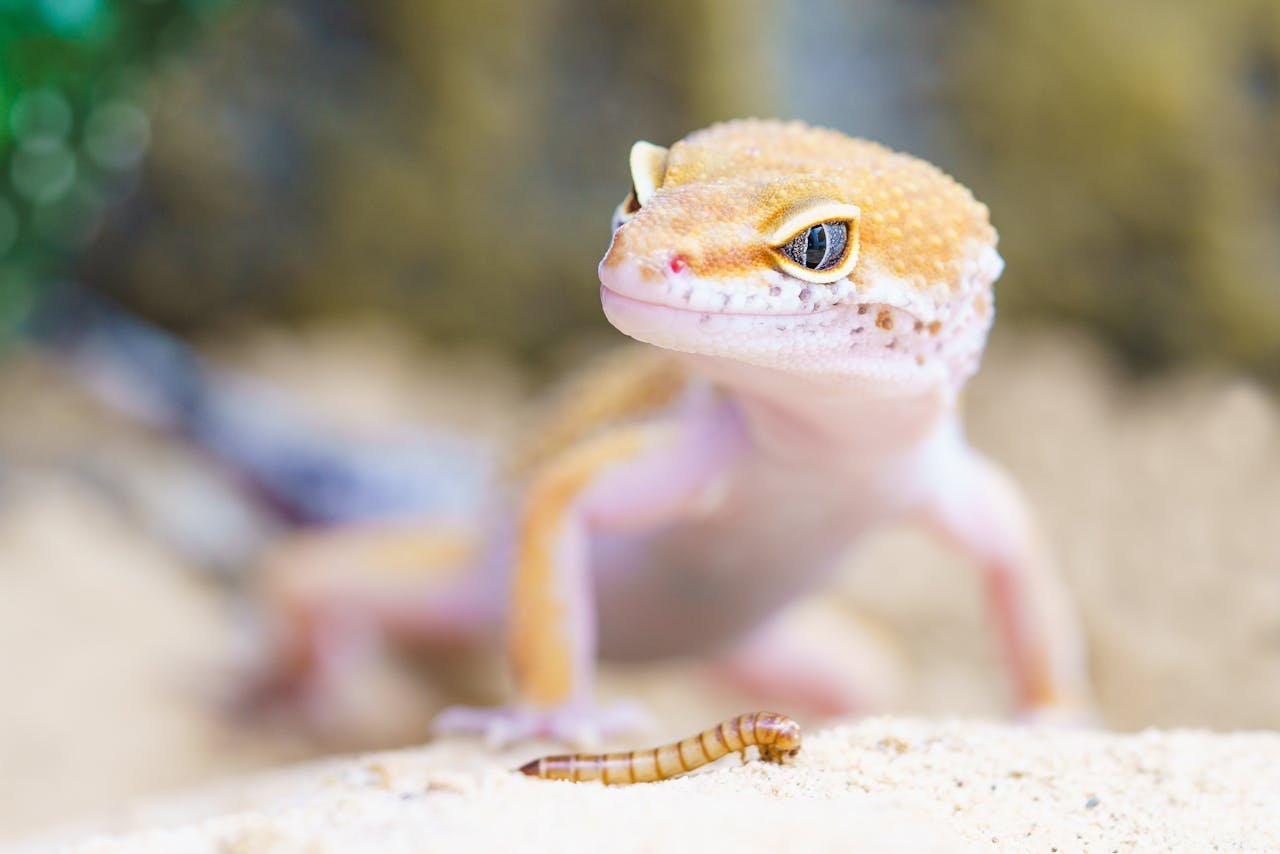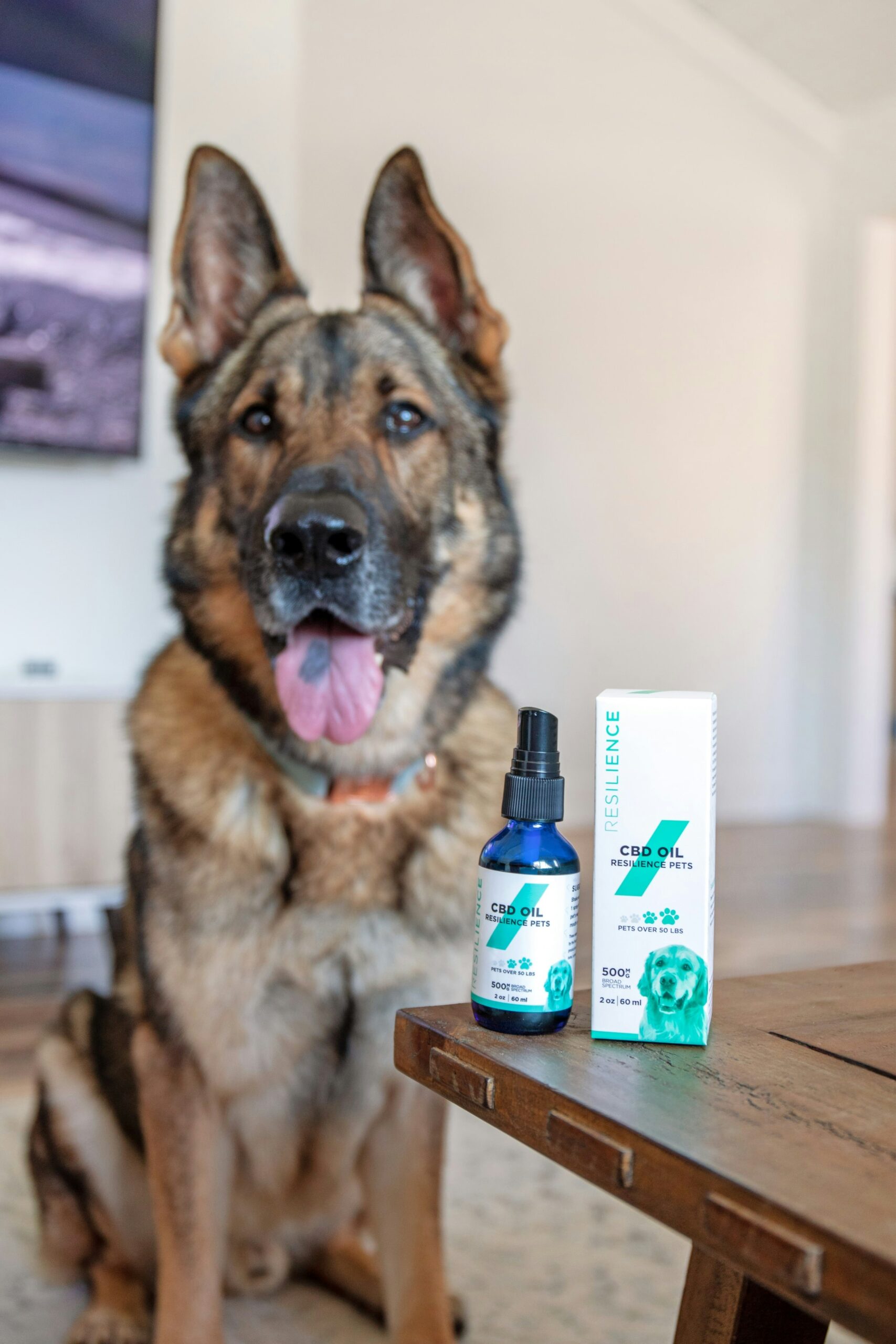Exotic Pet Care: A Beginner’s Guide
Introduction to Exotic Pets
Exotic pets represent a fascinating departure from conventional pet choices like cats and dogs. Typically, an exotic pet is defined as any animal that is not indigenous to the region where it is being kept or one that is considered out of the ordinary compared to traditional pets. This category includes a diverse range of animals, from reptiles such as iguanas and snakes to birds like parrots and even small mammals such as sugar gliders and hedgehogs.
The allure of exotic pets often lies in their unique and unusual characteristics. Many pet enthusiasts are drawn to the intrigue these animals present, offering a window into the diverse wildlife that exists beyond our everyday experience. Keeping an exotic pet can provide a sense of individuality and distinctiveness, as these pets stand out due to their rarity and often astonishing appearances.
However, choosing to keep an exotic pet comes with significant responsibilities and challenges. These animals frequently have specialized needs that require a deeper level of commitment and knowledge. For instance, their dietary requirements can be quite specific, and their living conditions must closely mimic their natural habitats to ensure their well-being. Moreover, finding veterinary care for exotic pets can be more complicated and expensive, as not all veterinarians are trained or equipped to handle their unique needs.
Understanding the intricate balance of proper care, habitat management, and health considerations are crucial for anyone considering an exotic pet. While the rewards of owning such a pet can be immense, providing the appropriate care and environment is essential. As such, potential owners must be prepared to invest time and resources into educating themselves about their chosen pet. This guide aims to offer foundational insights into the world of exotic pet care, helping beginners make informed and responsible decisions.
Choosing the Right Exotic Pet for You
Selecting the appropriate exotic pet is an essential first step for any prospective pet owner. Several factors must be considered to ensure a harmonious match between the pet and its new environment. Among the primary considerations is the animal’s lifespan. Exotic pets often have varying lifespans, some extending several decades. For instance, many species of parrots can live upwards of 40 years, while small mammals like hamsters or gerbils typically have shorter lifespans, ranging from two to four years. Prospective owners should evaluate their long-term commitment to accommodate the pet’s needs over its entire life.
Dietary requirements also play a significant role in the decision-making process. Exotic animals can have specialized diets that may not be readily available at local pet stores. For instance, reptiles like bearded dragons require a balanced diet of live insects and fresh vegetables, while some bird species may need a variety of seeds, fruits, and nuts. Researching the specific dietary needs of potential pets will help you determine if you can adequately meet these requirements.
Space requirements are another critical factor. Housing conditions must be conducive to the animal’s well-being. For example, reptiles often need enclosures that offer sufficient space for movement, climbing structures, and temperature-regulated environments. Birds require cages that allow them to stretch their wings freely and toys to stimulate mental engagement. Small mammals, such as guinea pigs, need cages with ample room for exercise and retreats to hide when they feel threatened or need rest.
Temperament is also a crucial consideration. Different species have varying levels of sociability and interaction needs. Some reptiles, such as geckos, are more solitary and less interactive than birds, which often thrive on social interaction and mental stimulation. Understanding the temperament and behavioral tendencies of an exotic pet is vital in determining if it aligns with your capacity for interaction and care.
Popular exotic pets for beginners include certain reptiles, birds, and small mammals. For instance, reptiles such as leopard geckos or corn snakes are often recommended due to their manageable care requirements. Birds like budgerigars, commonly known as budgies, are favored for their social nature and relatively easy care. Small mammals, such as guinea pigs and ferrets, are also excellent choices, given their playful temperaments and adaptability to different living spaces.
Taking the time to thoroughly research these factors ensures that you select an exotic pet that fits well within your lifestyle, living arrangement, and experience level. Making an educated decision will foster a gratifying and sustainable relationship between you and your new exotic companion.
Preparing Your Home for an Exotic Pet
Welcoming an exotic pet into your home necessitates meticulous preparation to create a safe and enriching environment tailored to their unique needs. Understanding the housing requirements of your chosen exotic pet is essential for their health and well-being. It all begins with setting up appropriate habitats or enclosures that mimic their natural habitats as closely as possible.
For reptiles, amphibians, or other cold-blooded species, maintaining the correct temperature gradient is crucial. This often involves the use of heat lamps, heaters, or under-tank heating pads to ensure they have access to both warm and cooler areas. Specific humidity levels are equally important, requiring the use of humidifiers, hygrometers, or misting systems to regulate the environment within the enclosure.
Birds, on the other hand, need spacious cages that allow for ample movement and flight. The placement of perches at varying heights, as well as the inclusion of toys and foraging activities, can help simulate the complexity of their natural ecosystems. An appropriate lighting schedule, often aided by full-spectrum UV lights, is important in maintaining their circadian rhythms and overall health.
Mammalian exotic pets like sugar gliders or ferrets require secure enclosures with multiple levels and opportunities for climbing and exploration. Bedding materials should be chosen with care to ensure they are non-toxic and suitable for the pet’s species. Similarly, guinea pigs and rabbits benefit from spacious enclosures with access to areas for digging and hiding, replicating their natural burrowing behavior.
Regardless of the type of exotic pet, ensuring a hazard-free environment is critical. Regularly inspect the living area for potential dangers such as loose wiring, toxic plants, small objects that could be ingested, and any other items that could pose a risk. Secure all doors and windows to prevent escape and ensure that the enclosure is robust against potential predators.
In conclusion, by investing time in understanding the specific needs of your exotic pet and preparing your home accordingly, you set the foundation for a stress-free and thriving environment. This preparatory phase is not just about creating a habitat but fostering a space where your exotic companion can live a healthy and enriched life.
Dietary Needs and Nutrition
Caring for exotic pets requires a deep understanding of their unique dietary needs, as these often differ drastically from those of more conventional pets. A balanced diet is paramount to ensuring the health and longevity of exotic animals. For reptiles, insects such as crickets, mealworms, and flies form an essential part of their diet. It’s crucial to provide a varied diet to avoid nutritional deficiencies and ensure that the insects are properly gut-loaded with the necessary vitamins and minerals before feeding them to your pets.
Birds, on the other hand, have more diverse dietary requirements that can include seeds, nuts, fruits, and vegetables. While seeds are a significant part of their diet, relying solely on them can lead to malnutrition. It is vital to diversify their food intake with fresh fruits and vegetables to provide essential vitamins and prevent common health issues, such as vitamin A deficiency and obesity. Owners should also consider providing specialized seed mixes tailored to specific bird species, as not all birds have the same nutritional needs.
Small mammals like ferrets and guinea pigs require specialized pellets designed to meet their dietary needs. For instance, guinea pigs need an adequate supply of vitamin C, which is typically supplemented through fresh vegetables and specially formulated pellets. Ferrets, being obligate carnivores, thrive on a diet high in animal protein and fat. High-quality commercial ferret food often suffices, but it’s essential to verify the ingredient list to ensure it meets their nutritional requirements. Providing fresh meat occasionally can also benefit ferrets’ diet.
Common dietary pitfalls to watch out for include overfeeding, offering inappropriate food items, and neglecting the need for supplements. For reptiles, calcium supplements are often necessary to prevent metabolic bone disease. Similarly, for birds and small mammals, providing clean, fresh water at all times is indispensable. Always source special foods from reputable vendors to ensure your pet receives uncontaminated, nutritious options.
Health and Veterinary Care
Ensuring the well-being of exotic pets requires attentive and specialized health care. One of the paramount steps in maintaining an exotic pet’s health is finding a veterinarian with expertise in exotic animals. Such specialized veterinarians are adept at understanding the unique physiology and health requirements of different exotic species, which is crucial for accurate diagnosis and treatment.
Recognizing signs of illness early can significantly impact the prognosis and overall health of your exotic pet. Common indicators that something may be amiss include changes in appetite or behavior, unusual discharge from the eyes, nose, or mouth, irregularities in fecal matter, and lethargy. Each species will have specific signs to watch out for. For example, reptiles may show signs of illness through changes in skin coloration, while birds might exhibit feather plucking or vocalization changes.
Various exotic pets are prone to specific health issues. Birds, for instance, can suffer from respiratory problems and feather disorders, while reptiles might deal with metabolic bone disease or skin infections. Small mammals, such as guinea pigs and ferrets, are susceptible to dental diseases and gastrointestinal issues. Understanding these common ailments can help in early detection and prompt medical attention.
Preventative care is equally vital in exotic pet health management. Regular veterinary check-ups, at least once or twice a year, are essential to catch potential issues before they become serious. Vaccinations, parasite control, and proper nutrition tailored to the specific needs of the exotic pet are foundational preventative measures. Additionally, maintaining a clean habitat and providing appropriate enrichment activities can significantly reduce the likelihood of disease and stress-related health problems.
In essence, a proactive approach to health care, including routine veterinary care and vigilant monitoring, is key to ensuring a long, healthy life for your exotic pet. Collaborating closely with an experienced exotic pet veterinarian will enable you to address health concerns promptly and keep your unique companion in optimal condition.
Handling and Socialization
Proper handling and socialization are crucial aspects of caring for exotic pets, ensuring both the well-being of the animal and the safety of the owner. Different species of exotic pets have unique requirements and sensitivities when it comes to being handled. Establishing trust with these animals often involves a gentle and patient approach, enabling them to become comfortable with human interaction over time.
When handling exotic pets, it is essential to understand the specific needs and behaviors of each species. For instance, reptiles like snakes or lizards require a firm but gentle grip to prevent stress, avoiding sudden movements that may startle them. Birds, on the other hand, may need gradual acclimatization, beginning with short sessions of handling, while ensuring support for their delicate frames. Small mammals such as hedgehogs and ferrets benefit from gentle cradling, allowing them to feel secure and unthreatened.
Socialization is equally important for exotic pets as it affects their emotional and psychological health. Each species has varying degrees of social needs that should be met through companionship or environmental enrichment. For example, parrots and other social birds thrive when they have ample interaction with their human caregivers and other birds, while solitary reptiles like snakes may require more environmental enrichment through habitat modifications and stimulation.
Environmental enrichment involves introducing accessories like climbing objects, toys, or puzzle feeders that provide mental stimulation and prevent boredom. This is especially critical for animals that spend extended periods in cages or enclosures. Engaging with your exotic pet through consistent routines and offering positive reinforcement during handling can strengthen the bond and reduce the likelihood of behavioral issues.
In summary, the successful care of exotic pets hinges on understanding and adeptly meeting their handling and social needs. By adopting a patient and informed approach, owners can foster trusting and enriching relationships with their exotic companions, ensuring their long-term health and happiness.
Legal and Ethical Considerations
Owning an exotic pet comes with a range of legal and ethical responsibilities that must be carefully considered. Each region has its own set of laws governing the ownership of exotic animals. It is crucial to familiarize oneself with these regulations to ensure compliance. Some species may be entirely banned, while others may require special permits or licenses. Ignorance of these laws can lead to hefty fines, confiscation of the pet, or even criminal charges. Consequently, thorough research into local, state, and federal regulations is imperative before deciding to acquire an exotic pet.
Beyond legal considerations, ethical implications must also be weighed. The exotic pet trade has significant impact on wild populations and ecosystems. Many animals are removed from their natural habitats under harsh conditions, leading to a decline in species numbers and ecological imbalances. Organizations such as the Convention on International Trade in Endangered Species (CITES) work to regulate and monitor the trade to protect vulnerable species. Prospective exotic pet owners should be aware of the source of their pets, ensuring they are acquired through reputable and ethical channels.
Moreover, owning an exotic pet raises serious animal welfare concerns. These animals often have complex needs that are difficult to meet in a domestic setting. They may require specific diets, specialized habitats, and social interactions that mimic their natural environments. Failure to meet these needs can result in poor health and short lifespans for the pets. Ethical ownership involves a commitment to providing the best possible care, which may involve significant time and financial investment.
Conservation is another important ethical consideration. Many exotic pets are endangered species whose wild populations are declining. Owning such pets can inadvertently support exploitation and reduce their chances of survival in the wild. As stewards of these animals, owners have a responsibility to support conservation efforts and be aware of the broader impact of their choices.
Understanding and adhering to legal and ethical guidelines is a fundamental aspect of responsible exotic pet ownership. By doing so, prospective owners can ensure they are contributing to the welfare of their pets and the protection of wildlife globally.
Resources and Support for Exotic Pet Owners
Navigating the world of exotic pet care necessitates access to reliable resources and support systems. Fortunately, there is a wealth of information available for those who are dedicated to learning and providing the best care for their unique companions. Becoming part of an active community is not only enriching but also vital for the well-being of both the pet and the owner.
One of the most accessible resources for exotic pet owners is online forums. Websites such as Reddit, Pet Forums, and dedicated exotic pet communities offer an abundance of firsthand advice and shared experiences from fellow pet enthusiasts. These platforms are invaluable for troubleshooting issues, sharing tips on environment enrichment, and keeping abreast of any new care techniques.
Joining local exotic pet clubs and societies is another excellent way to gain support. These groups often organize events, meet-ups, and educational workshops that provide invaluable insights into keeping exotic pets happy and healthy. Additionally, engaging with local clubs helps to foster a sense of community among pet owners, strengthening networks of mutual support.
Professional organizations such as the Association of Exotic Mammal Veterinarians (AEMV) and the Association of Reptilian and Amphibian Veterinarians (ARAV) are crucial allies in exotic pet care. These organizations offer resources that include an array of scholarly articles, veterinary directories, and updated best practices for exotic pet care. Consulting these resources ensures that your pet benefits from the latest advancements in veterinary medicine.
For those looking to deepen their knowledge, a variety of books and websites provide comprehensive information on exotic pet care. Highly recommended titles include “Exotic Pet Care Made Simple” by Dr. John Smith and “The Complete Guide to Reptile Care” by Dr. Jane Doe. Websites such as ExoticPetVet and The Happy Lizard also offer expert advice and practical care guides.
Finally, never underestimate the importance of consulting with specialized veterinarians. Establishing a relationship with a vet experienced in exotic pets is one of the most significant steps you can take to ensure your pet’s health and longevity. These professionals can provide not only medical care but also guidance on diet, housing, and overall wellness specific to your exotic pet’s needs.















Post Comment